Eid-ul-Adha is celebrated on the 10th of Dhul Hijjah, the twelfth and final month in the Islamic Lunar calendar. It marks the end of Hajj, which is the annual pilgrimage of Muslims worldwide to city of Makkah in Saudi Arabia. It is a time to rejoice and celebrate by wishing each other “Eid Mubarak” or “Have a blessed Eid.”
It is as the Prophet (sal Allahu alayhi wa sallam) said, “The greatest day in the sight of Allah, may He be blessed and exalted, is the Day of Sacrifice…” (Abu Dawud). The Prophet (sal Allahu alayhi wa sallam) also said:
“The day of ‘Arafah, the day of Sacrifice, and the days of al-Tashreeq are our festival, us Muslims, and they are days of eating and drinking.” (Tirmidhi).
It is the day when many acts of worship are combined, such as reciting takbeerat exalting Allah, praying as a large community, and offering the udhiya (the sacrificial animal).
History of the Eid ul Adha FestivalEid ul Adha is an Islamic festival commemorating the obedience and faith of Prophet Ibrahim (A.S) to sacrifice his son Prophet Ismail (A.S), for Allah (S.W.T). Allah tested Ibrahim by commanding him through a dream to sacrifice his son, Ismail. He then set off with his son to a mountain, where he would perform the sacrifice. But while he was about to slaughter his son, Allah The Almighty rewarded him with a sheep instead, to be sacrificed.
Eid al Adha falls on the 10th of Dhul Hijjah of the Islamic calendar and happens after the Hajj. This celebration is one of the 2 main festivals in Islam; the other is Eid ul Fitr.
And so, with every smile, every helping hand, every lovely word, every helpful reminder, every good deed during these blessed 10 days before ‘Eid al Adha count more than all year long, inshaallah,
so let’s collect Hasanaat and let’s fast the day of Arafa for the sake of Allah alone, inshaallah..
May Allah unite this Ummah and guide us to the right path of peace, we wish everyone a happy blessed and beautiful Eid InshaAllah..
Please read more for some very important reminders :)
Sunnahs pertaining to the day of ‘Eid-ul-Adha:
1. The Prophet (sal Allahu alayhi wa sallam) used to do ghusl on the day of ‘Eid.
2. He (sal Allahu alayhi wa sallam) used to wear his most beautiful garments to go out to pray. For modesty reasons, the women should avoid adorning themselves when they go out for ‘Eid.
3. With regard to ‘Eid-ul-Adha, the Prophet (sal Allahu alayhi wa sallam) used not to eat anything until he came back from the place of prayer. He would eat some of the meat of his sacrifice. If a person is not planning to offer a sacrifice, then there is nothing wrong with eating before the prayer.
4. And he (sal Allahu alayhi wa sallam) used to go out to the ‘Eid prayer walking and come back walking. He (sal Allahu alayhi wa sallam) used to vary his route on the day of ‘Eid. He would go by one route and come back by another.
5. Another sunnah is to say the takbeerat “Allahu akbar, Allahu akbar, laa ilaaha illAllah, wa Allahu akbar, Allahu akbar, wa lillaah il-hamd (Allah is Most Great, Allah is most Great, there is no god but Allah, Allah is Most Great, Allah is Most Great, and to Allah be praise)” when coming out of one’s house to the prayer place and until the imam comes.
6. The Prophet (sal Allahu alayhi wa sallam) used to offer the ‘Eid prayers in the prayer-place (musalla).
7. He (sal Allahu alayhi wa sallam) did not offer any prayer in the prayer-place before or after the ‘Eid prayer.
8. The ‘Eid prayer does not consist of an adhaan or an iqaamah.
9. The Prophet (sal Allahu alayhi wa sallam) would start with the prayer before the khutbah.
10. There are seven takbeerat in the first raka’h and five takbeerat in the second raka’h of ‘Eid prayer (Tirmidhi).
11. The khutbah after the ‘Eid prayer is optional. Abu Dawood narrated that ‘Abdullah ibn al-Saa’ib said: “I attended ‘Eid (prayer) with the Messenger of Allah (sal Allahu alayhi wa sallam), and when he had finished the prayer he said: ‘We are going to deliver the khutbah, so whoever wants to sit and listen to the khutbah, let him do so, and whoever wants to leave, let him go.’”
12. Exchange du’a, congratulations or good wishes with the people at the end of the khutbah. Examples include: Taqabbal Allah minna wa minkum (May Allah accept (good deeds) from us and from you) or “Eid Mubarak” and other permissible expressions of congratulations.
13. The Days of Tashreeq: The days of Tashreeq are the 11th, 12th and 13th of Dhul Hijjah. The Prophet (sal Allahu alayhi wa sallam) said concerning the days of Tashreeq: “They are days of eating, drinking and remembering Allah.” It is recommended to remember Allah immediately after the prescribed prayers by reciting the takbeerat. This is prescribed until the end of the days of Tashreeq according to the majority of scholars.
So from all of us here at Muslim Matters, Eid Kareem! Eid Mubarak! A very prosperous and joyous ‘Eid! Taqabbal Allah minna wa minkum! Ameen, ya Rabbil ‘alameen.
Footnote: Information on the sunnahs of ‘Eid-ul-Adha was taken from www.islamqa.com


















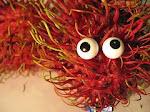



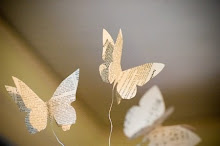
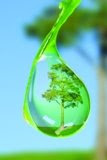

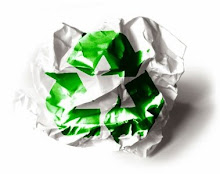




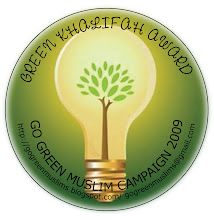.jpg)

No comments:
Post a Comment